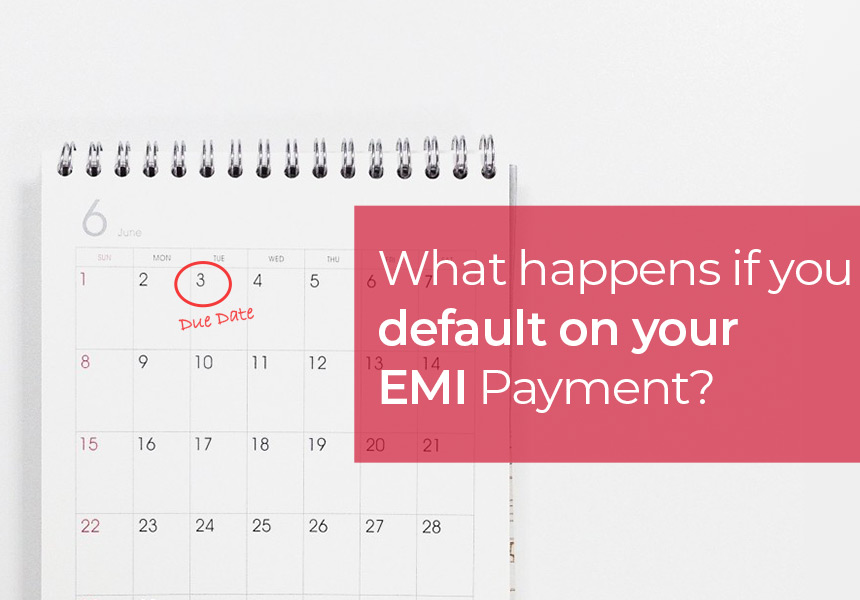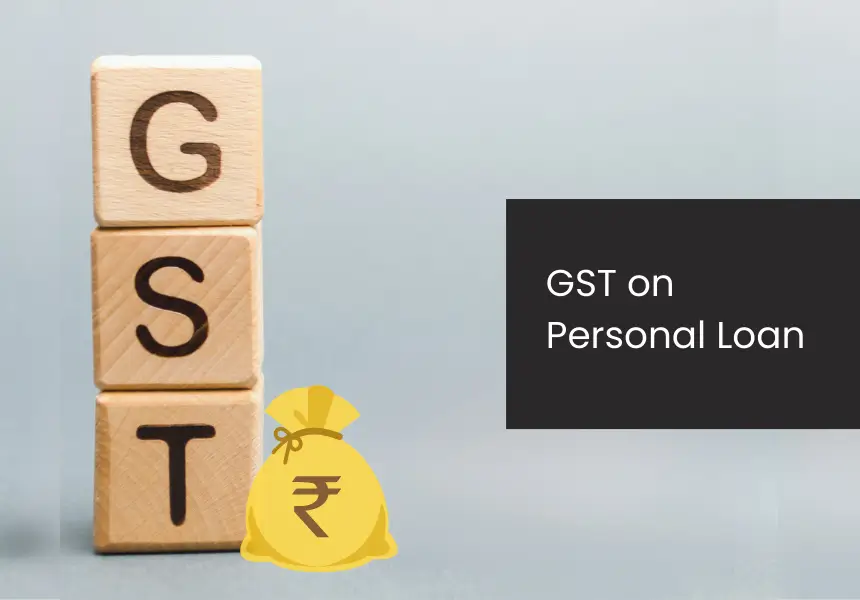
Personal loans are an unsecured form of debt that are easily available from financial organizations, offline and online. These are most suited for emergency situations. There is no restriction on the usage of the personal loan amount. Defaulting on a scheduled payment could have repercussions. When you miss paying your outstanding dues, within the due period, you are considered a defaulter. Every lender has their terms and conditions when it comes to non-payment of personal loan.
What is Default and Who exactly is a Defaulter?
You are considered a defaulter if you fail to pay your EMIs on time. However, some loan providers have a “grace period” which starts after your payment date; if you make your payment in this grace period, you will need to pay the “late payment” fee but saves you from the title of a defaulter. Different lenders have different durations and terms for the grace period. Missing one payment may not make you a defaulter. But if you miss a couple of EMIs, your lender will report you as a defaulter.
There are two types of defaulters:
The first is a genuine defaulter. Someone who usually makes his/her EMI payments on time but misses on payment because of unforeseen circumstances, such as medical emergencies or job loss, is a genuine defaulter. In such cases, the lender may consider the genuineness of the case and grant an extended grace period.
The second type of defaulter is the less responsible kind; these defaulters may have the money for the payments but miss the payment date due to sheer negligence.
What happens when you of default on your personal loan?
Here are some of the consequences of defaulting on your personal loan EMI payment:
Credit report and credit score
All your financial transactions related to your debts are recorded in your credit report. Payment details, such as date and amount of EMIs, are included in the credit report that helps CIBIL decide your credit score. All your overdue payments or non-payments are reported to CIBIL by your lender. These factors harm your credit score. Missing even one payment could lower your credit score. With a poor credit history, it becomes exceedingly difficult to obtain loans in the future.
Read More in our blog on Factors Affecting CIBIL Score.
Late fees and extra charges
Late payment or non-payment of an EMI may attract additional fees and charges from the lender. For instance, if you make a payment towards your EMI after the due date or within a grace period, you will need to pay the “late payment” fees. If you delay the payment even more and become a “defaulter”, you may be charged additionally on the unpaid amount.
Lowers future borrowing capacity
When you apply for any loan, the lender carefully checks your credit report and score to get an idea about your financial stability and assesses the risk involved in providing a loan to you. A low credit score makes lenders hesitate in lending you money. Even if they decide to make an exception, they will probably loan you a smaller amount than you asked for and may charge you a higher interest.
Loss of collateral/asset
Though personal loans are unsecured, in some cases, the lender may ask for a collateral for such loans. Defaulting on secured loans will make you lose your asset or the security you have pledged. In some cases, your loan application will need the name of a guarantor and defaulting on your payment will land your guarantor in trouble too.
Legal implications
Defaulting on unsecured loans wouldn’t necessarily put you behind bars but a civil suit is certainly a possibility. After multiple attempts to retrieve the loan amount, the lender may resort to the legal path to get his/her money back.
Heres how you can avoid defaulting by streamlining your loans :
If you are worried about possibly defaulting on your EMI payment in case of emergency situations, you need to read about the steps you can take to avoid a messy situation. Seek financial help from family or friends or contact your lender to work out a solution. Some options that can be explored are:
Request the lender to lower the EMI:
If you can convince the lender about the legitimacy of your financial bind and convince him that you have a genuine reason for defaulting, he may agree to lower the EMI amount to a manageable number. This can be done by either increasing the loan tenure or by converting an unsecured loan into a secured one by pledging a security.
Postpone the payment:
If your reason for non-payment is temporary, you may request the lender to allow you an EMI-free period. Under this, the lender may give you relief from payment of your EMI for a few months for a charge or a penalty.
Negotiate a settlement:
If you have explored all workable solutions and are now sure that you can’t make the remaining EMI payments anytime soon, you may want to sit down with the lender to negotiate a settlement. The settlement amount may be lower than the principal amount and the settlement terms vary from case-to-case. This is beneficial to both the parties as the bank can retrieve some loan amount and the applicant is able to close the personal loan by paying a lower amount.
Consolidate:
If you have multiple unsecured loans and are unable to manage timely payments, consolidate your debts into a single personal loan. The main advantage here is that you do not have to keep track of multiple EMI payments. You just need to manage a single debt.
Read about what is debt consolidation in our extensive guide.
Ask for Loan Insurance:
Well known as Loan Protection Insurance, it is a product designed specifically to cover your monthly loan payouts in case of temporary/permanent disability, loss of job, or any such eventuality that leads a borrower to default on his payments. The Insurance can be used to repay the personal loan amount, though, the policy may differ from lender to lender.
Related Post : What is Loan Insurance
Every form of debt comes with a risk and responsibility. One must ascertain the consequences of defaulting before borrowing. It is important to be disciplined on payments of EMI to maintain a healthy credit history.
This allows you the financial freedom to enjoy your life to the fullest.








